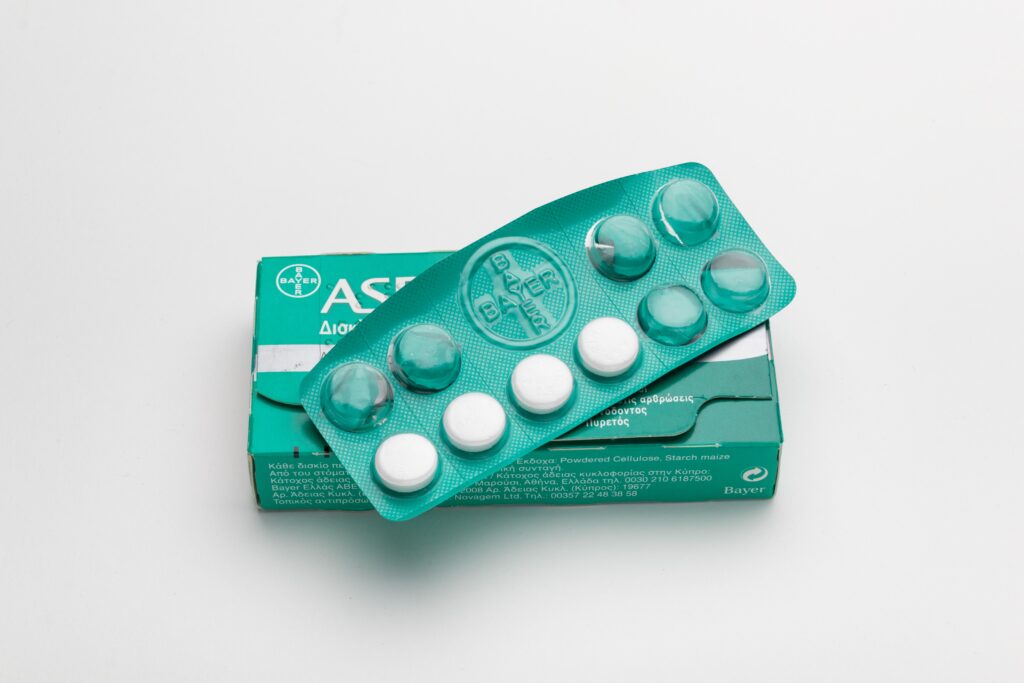Daily Aspirin Could Prevent Return of Colorectal Cancer in Patients with Key Gene Mutations
A daily dose of aspirin can substantially reduce the risk of some colorectal cancers returning after surgery, according to a major trial into the protective effects of the everyday painkiller.
Swedish researchers found that people who took a low daily dose of aspirin after having their tumour removed were half as likely to have their cancer return over the next three years than patients who took a placebo.
The trial involved cancer patients whose tumours carried specific genetic mutations that made them susceptible to aspirin’s anti-cancer properties. About 40% of colorectal cancer patients have such mutations.
“I think this will change clinical practice,” said Prof Anna Martling, who led the Alascca trial at the Karolinska Institute in Stockholm. “If you had these mutations, the risk of the cancer coming back was lowered by more than 50%. It is a huge effect.”
Nearly 2 million people are diagnosed with colorectal cancer each year around the world, with more than 40,000 cases in the UK. Many have their tumours removed, but despite advances in chemotherapy, radiotherapy and surgery, the cancer can return if cells are left behind.
Rates of bowel cancer are rising worldwide in people under 50, and while the reasons are unclear, scientists suspect junk food, obesity, a lack of physical activity and toxins produced by gut bacteria are involved.
Previous trials have shown aspirin can help to prevent colorectal cancer in people who are high risk because of hereditary conditions such as Lynch syndrome. But it was unclear whether the drug reduced the chances of cancer recurring after surgery.
Martling and her colleagues recruited more than 3,500 patients who had had colorectal tumours removed at hospitals in Sweden, Norway, Denmark, and Finland. Genetic tests on 2,980 of the patients found 1,103, or 37%, had mutations in genes that make up a biological pathway called PI3K, which is implicated in colorectal cancer.
The patients with the mutations were randomly assigned to have 160mg aspirin a day or a placebo for three years after surgery. Those on aspirin were 55% less likely to have the cancer return than those on placebo, the trial showed.
The drug appears to protect against cancer by dampening down inflammation, interfering with the PI3K pathway, and dampening down the activity of blood platelets, which can surround tumour cells and effectively hide them from the patient’s immune system.
Martling said the results emphasised the need to run genetic tests on all colorectal cancers so patients who stood to benefit from aspirin could be given the drug. “It’s a widely available drug that is extremely inexpensive,” she said.
Aspirin has been on the market for more than a century, but taking the drug long-term still has risks. In the trial, four patients had “severe adverse events” potentially linked to aspirin, including allergic reaction, gastrointestinal bleeding and bleeding on the brain. Four patients died across both arms of the trial, with one fatality possibly caused by aspirin. Details are published in the New England Journal of Medicine.
Dr Catherine Elliott, director of research at Cancer Research UK, said: “Preventing cancer cases saves lives, and finding new ways to do this is key to our efforts to beat cancer. There is increasing evidence that in certain groups of people, low-dose aspirin can offer protection from bowel cancer.
“The Cancer Research UK-funded CaPP3 trial showed a similar effect in people living with Lynch Syndrome, an inherited condition that increases the risk of bowel and other cancer types.
“We need larger, high-quality studies like CaPP3 and this recent research to confirm who would most benefit from taking aspirin to help them live longer, better lives, free from the fear of cancer.”



